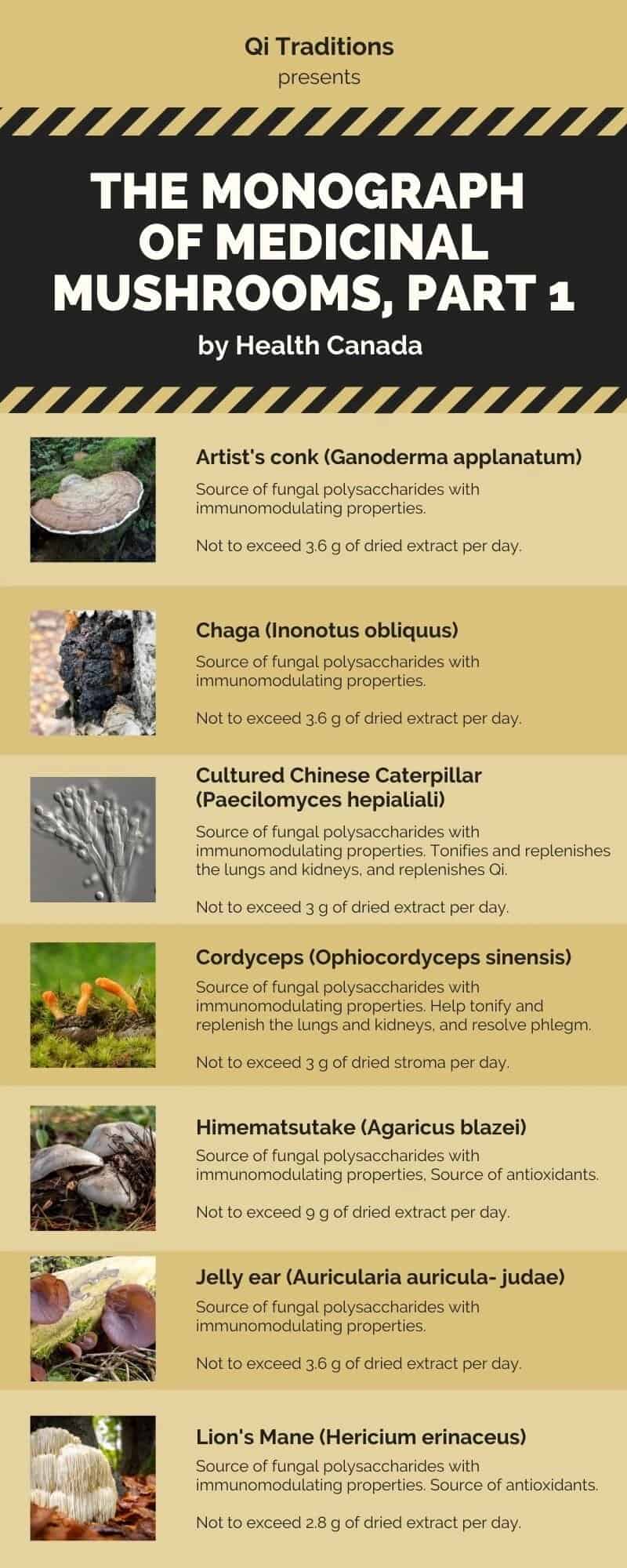Traditionally, mushrooms were used to maintain good health, as well as to prevent and treat diseases, mainly by regulating the immune system. In the last decade, scientists have identified and explored other ways in which various mushroom species promote good health, revealing mushrooms to be unique, multi-modal medicinal agents worthy of further investigation.
Today, more than 100 therapeutic applications have been demonstrated by mushrooms, including antioxidant, anti-inflammatory, anticancer, antitumor, anti-diabetic, immunomodulating, antiviral, antibacterial, anticholesterolemic, antiparasitic, and antifungal. Mushrooms also protect against brain, heart, and liver damage. While modern researchers are just beginning to explore the clinical potential of medicinal mushrooms in the West, countries in the East such as Japan, Korea, China, and Russia have already adopted mushroom-derived preparations for use in clinical practice. For example, mushrooms have been used in traditional Chinese medicine for years to treat pulmonary diseases, and in Japan, the mushroom T. Versicolor has been used as an approved product for adjunctive cancer treatment since the 1970s.
The number of mushroom species on Earth is currently estimated at 150,000, yet perhaps only 10 percent are known to science. With all these types of mushrooms, it's easy to get confused about where to start your medicinal mushroom journey. At Qi Traditions, we've super-simplified your search with Health Canada's Monograph that lists the top 14 types of medicinal mushrooms in the world.
